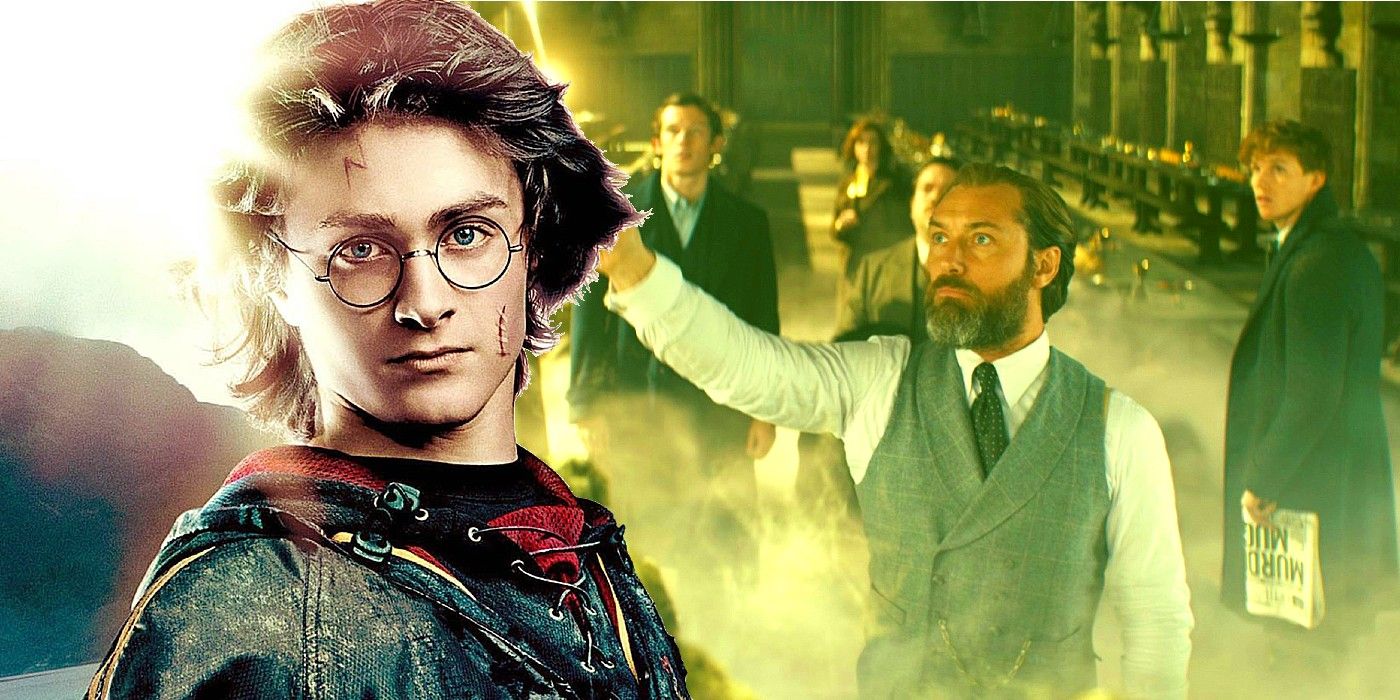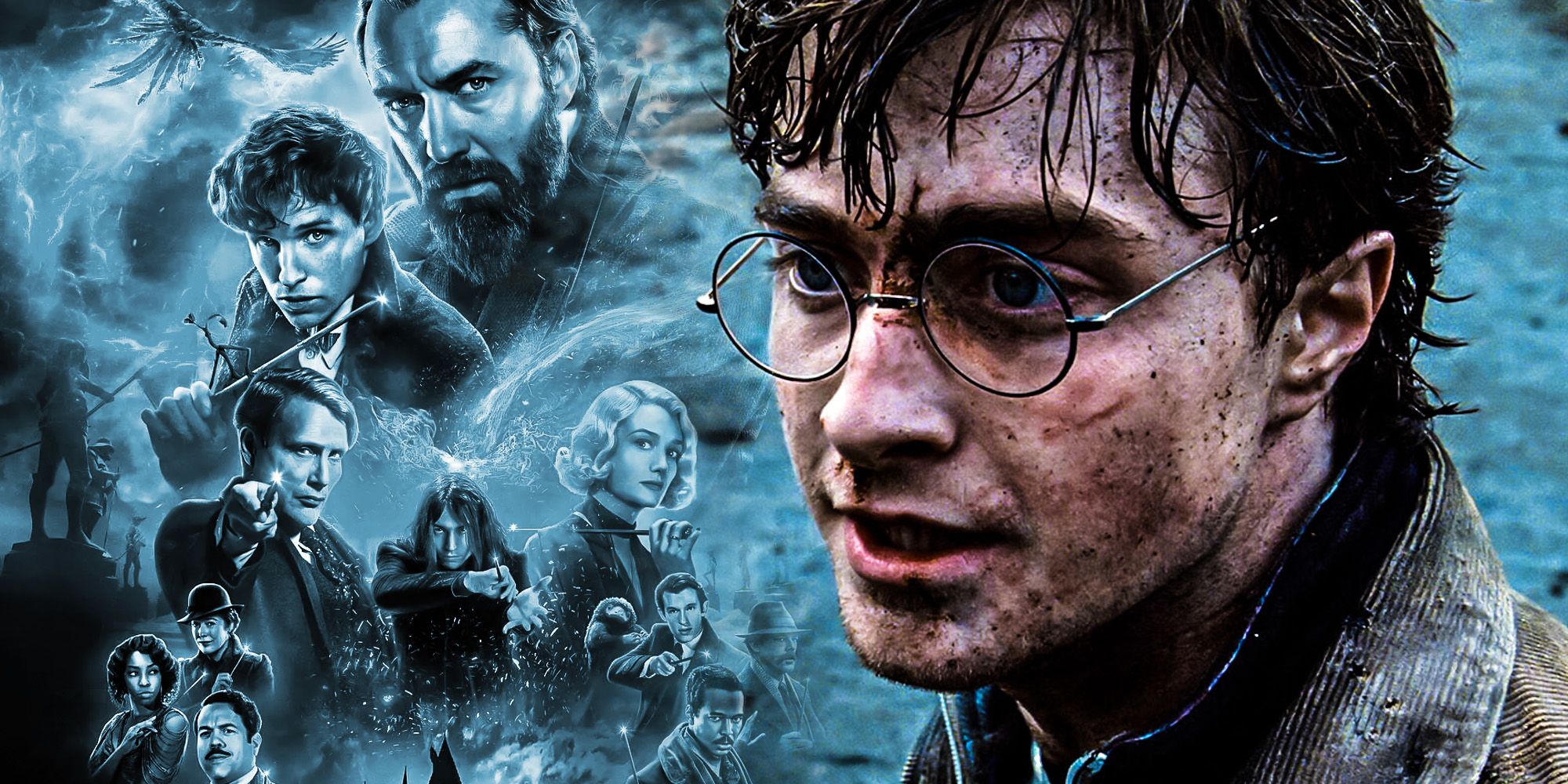
Fantastic Beasts: The Secrets of Dumbledore is a noticeable step up from its predecessor, which is in no small part down to veteran Harry Potter screenwriter Steve Kloves. The future of the Fantastic Beasts series is still doubtful after The Secrets of Dumbledore became the lowest-grossing movie in the Harry Potter universe. The box office failure of Fantastic Beasts 3 though, shouldn't be attributed to the movie's screenplay, which had a significant boost from the Harry Potter franchise’s secret weapon.
Though J.K. Rowling wrote all the Harry Potter books, screenwriter Steve Kloves adapted all but one of the subsequent movies. J.K. Rowling switched from author to screenwriter for 2016's Fantastic Beasts and Where to Find Them and 2018's Fantastic Beasts: The Crimes of Grindelwald. While the first Fantastic Beasts movie was relatively well-received, the critical reception of The Crimes of Grindelwald was far more scathing. Its low-stakes plot was needlessly complicated and full of holes, while the introduction of too many new characters meant that most of them were given little to do. By the time Fantastic Beasts: The Secrets of Dumbledore was announced, it became clear that the Harry Potter prequel series needed to be reinvigorated.
Bringing in Harry Potter's main screenwriter Steve Kloves to co-write Fantastic Beasts: The Secrets of Dumbledore was a wise creative decision by the Fantastic Beasts producers. Adapting the Harry Potter books gave him a valuable understanding of the cinematic qualities that a screenplay needs, as opposed to the structure of a novel, which The Crimes of Grindelwald often feels like. His knowledge of the Wizarding World meant he could bring more of the Harry Potter-style magic and mythology back to the story that was largely missing from the second Fantastic Beasts movie. This is emphasized by the fact that The Secrets of Dumbledore's character arcs are more fleshed out without grinding the film to a halt or meandering down narrative cul-de-sacs. This is especially noticeable in Dumbledore and Grindelwald's relationship, with both wizards' stories undoubtedly benefiting from Steve Kloves joining the project.

Notably, the one Harry Potter movie that Steve Kloves didn't write the screenplay for (Harry Potter and the Order of the Phoenix) is a noticeable step down from Harry Potter and the Prisoner of Azkaban and Harry Potter and the Goblet of Fire, further highlighting the qualities he brought to the Harry Potter movies. In co-writing Fantastic Beasts: The Secrets of Dumbledore with J.K. Rowling, he was able to rein in the story and keep it more focused, coherent, and character-driven. The narrative problems that plagued Fantastic Beasts: The Crimes of Grindelwald are primarily fixed in The Secrets of Dumbledore, and even though Fantastic Beasts 3 recons Harry Potter lore throughout the movie, these changes are all in service to the story and the characters to improve the movie.
It's unclear whether Fantastic Beasts 4 is still on Warner Bros. Discovery's agenda following the disappointing box office of The Secrets of Dumbledore. However, regardless of whether the future of the Wizarding World is leaning towards more Harry Potter movies over Fantastic Beasts, given his success with both series, it would be wise to keep Steve Kloves around. Fantastic Beasts: The Secrets of Dumbledore's legacy is not yet set, but even if it is destined to be remembered as the movie that killed the Fantastic Beasts franchise, Steve Kloves's contribution in elevating its story from the previous installment shouldn't be forgotten.
While Fantastic Beasts: The Secrets of Dumbledore failed at the box office, bringing in a Harry Potter veteran elevated the story over the last movie.Andrew Waskett-Burt
